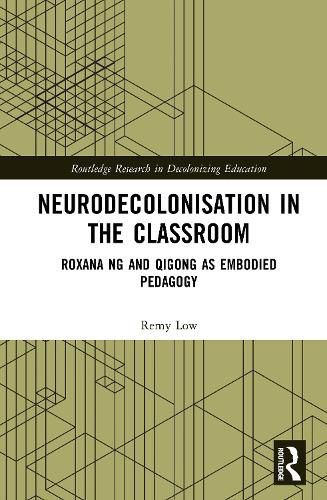Readings Newsletter
Become a Readings Member to make your shopping experience even easier.
Sign in or sign up for free!
You’re not far away from qualifying for FREE standard shipping within Australia
You’ve qualified for FREE standard shipping within Australia
The cart is loading…






This book extends on the scholarship on decolonising higher education by focusing on classroom pedagogies that can transform students' embodied affects and habits as conditioned by coloniality.
It does so by offering a historical case study of how one exemplary educator - Canadian activist and scholar Roxana Chu-Yee Ng (1951-2013) - drew on traditional Chinese medicine philosophy and Qigong practice to offer an embodied pedagogy that had profound effects on many of her students.
This book brings together scholarship from critical education, contemplative pedagogy, the neuroscience of stress, mind-body medicine, and embodied cognition to make the case for the importance of embodied pedagogies in any project for decolonising higher education. An innovative contribution to embodiment and decolonial studies, this book will be of great interest to researchers and postgraduate students exploring interdisciplinary methods.
$9.00 standard shipping within Australia
FREE standard shipping within Australia for orders over $100.00
Express & International shipping calculated at checkout
This book extends on the scholarship on decolonising higher education by focusing on classroom pedagogies that can transform students' embodied affects and habits as conditioned by coloniality.
It does so by offering a historical case study of how one exemplary educator - Canadian activist and scholar Roxana Chu-Yee Ng (1951-2013) - drew on traditional Chinese medicine philosophy and Qigong practice to offer an embodied pedagogy that had profound effects on many of her students.
This book brings together scholarship from critical education, contemplative pedagogy, the neuroscience of stress, mind-body medicine, and embodied cognition to make the case for the importance of embodied pedagogies in any project for decolonising higher education. An innovative contribution to embodiment and decolonial studies, this book will be of great interest to researchers and postgraduate students exploring interdisciplinary methods.